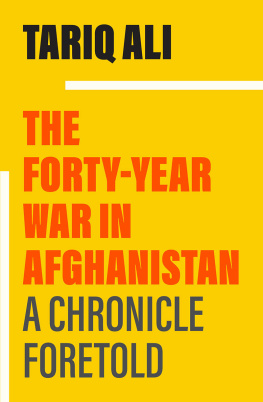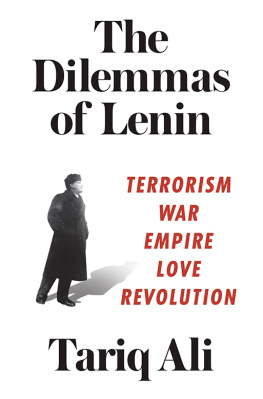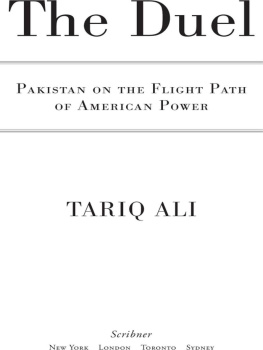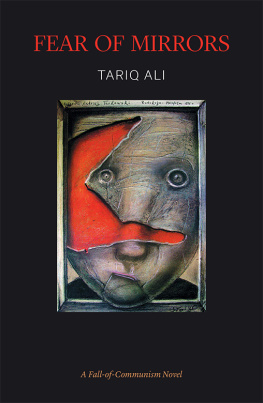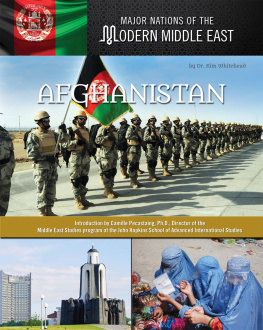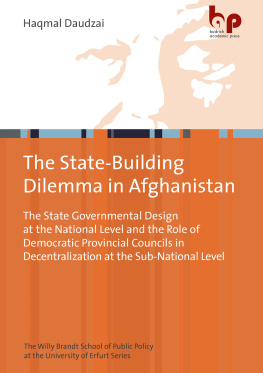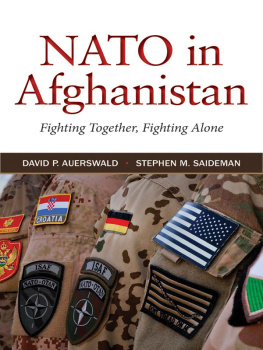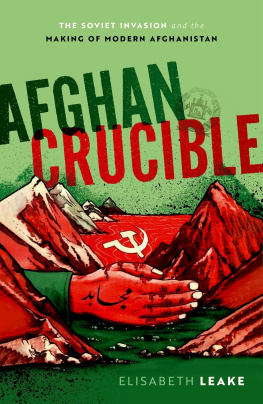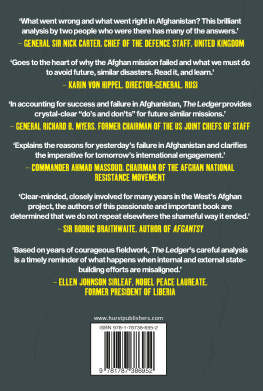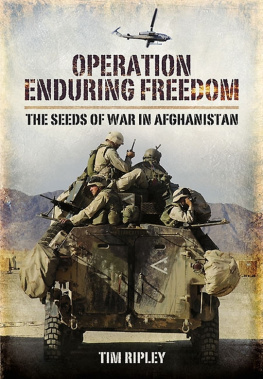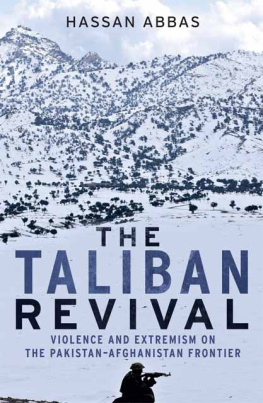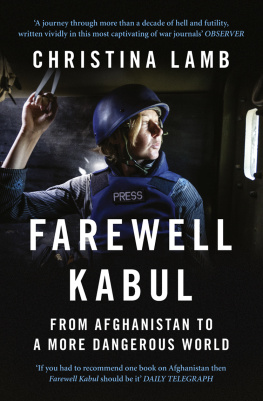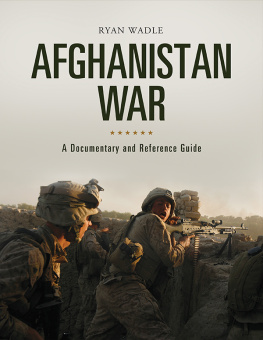Contents

The Forty-Year War in
Afghanistan
The Forty-Year War in
Afghanistan
A Chronicle Foretold
Tariq Ali

First published by Verso 2021
Tariq Ali 2021
The chapters collected herein appeared first, sometimes in slightly different form, in the following publications: Can Pakistan Survive? The Death of a State (Penguin, 1983) (Ch. 2; Appendix [The Suicide of the Afghan Left]). The Clash of Fundamentalisms: Crusades, Jihads and Modernity (Ch. 7, Verso, 2002). Guardian (Ch. 5, 10 October 2001; Ch. 6, 30 November 2001; Ch. 8, 11 October 2003; Ch. 10, 28 February 2007; Ch. 11, 11 May 2007; Ch. 19, 30 July 2010; Ch. 20, 4 May 2011; Ch. 22, 2 May 2011; Ch. 24, 20 January 2012; Ch. 26, 4 February 2014). Lana Turner (Ch. 21, no. 4, 2011); London Review of Books (Ch. 4, April 1999; Ch. 9, 20 May 2004; Ch. 14, 17 July 2008; Ch. 16, 23 July 2009; Appendix [Russian Lessons], 16 June 2011). London Review of Books Blog (Ch. 17, 19 November 2009; Ch. 18, 24 June 2010; Ch. 20, 2 May 2011 [also Guardian]; Ch. 23, 28 November 2011; Ch. 25, 12 March 2012). Nation (Ch. 27, 9 September 2021). New Left Review (map, MarchApril 2008; Ch. 3, MarchApril 2000; Ch. 12, MarchApril 2008; Appendix [Initiatives from Moscow Are Needed], JulyAugust 1985). NLR Sidecar (preface, 16 August 2021). Socialist Challenge (Ch. 1, January 1980). TomDispatch (Ch. 13, 16 November 2008; Ch. 15, 16 September 2008).
All rights reserved
The moral rights of the author have been asserted
1 3 5 7 9 10 8 6 4 2
Verso
UK: 6 Meard Street, London W1F 0EG
US: 20 Jay Street, Suite 1010, Brooklyn, NY 11201
versobooks.com
Verso is the imprint of New Left Books
ISBN-13: 978-1-83976-817-0
ISBN-13: 978-1-83976-821-7 (UK EBK)
ISBN-13: 978-1-83976-822-4 (US EBK)
British Library Cataloguing in Publication Data
A catalogue record for this book is available from the British Library
Library of Congress Cataloging-in-Publication Data
A catalog record for this book is available
from the Library of Congress
Typeset in Sabon LT by Hewer Text UK Ltd, Edinburgh
Printed and bound by CPI Group (UK) Ltd, Croydon CR0 4YY
For all the people of Afghanistan, old and young, who have suffered the traumatic effects of a forty-year war, and especially for the Afghan women whose struggle, as with many of their peers in South Asia, is far from over.
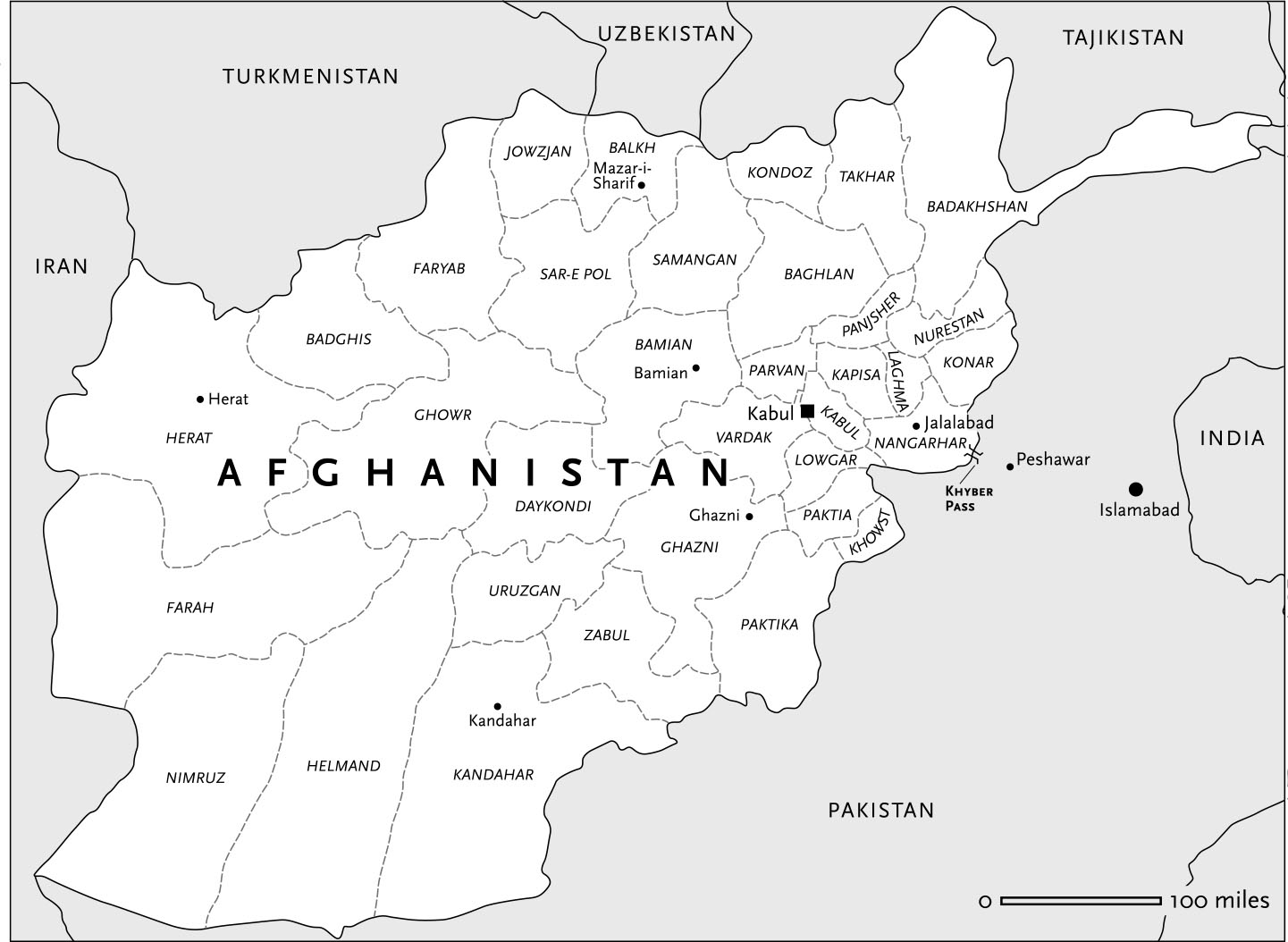
Contents
The fall of Kabul to the Taliban on 15 August 2021 is a major political and ideological defeat for the American Empire. The crowded helicopters carrying US embassy staff to Kabul airport were startlingly reminiscent of the scenes in Saigon now Ho Chi Minh City in April 1975. The speed with which Taliban forces stormed the country was astonishing; their strategic acumen remarkable. A week-long offensive ended triumphantly in Kabul. The 300,000-strong Afghan army crumbled. Many refused to fight. In fact, thousands of them went over to the Taliban, who immediately demanded the unconditional surrender of the puppet government. President Ashraf Ghani, a favourite of the US media, fled the country and sought refuge in Oman. The flag of the revived Emirate is now fluttering over his presidential palace.
In some respects, the closest analogy is not Saigon but nineteenth-century Sudan when the forces of the Mahdi swept into Khartoum and martyred General Gordon. William Morris celebrated the Mahdis victory as a setback for the British Empire. Yet while the Sudanese insurgents killed an entire garrison, Kabul changed hands with little bloodshed. The Taliban did not even attempt to take the US embassy, let alone target American personnel.
The twentieth anniversary of the war on terror thus ended in predictable and predicted defeat for the US, NATO and others who clambered on the bandwagon. However one regards the Talibans policies I have been a stern critic for many years their achievement cannot be denied. In a period when the US has wrecked one Arab country after another, no resistance that could challenge the occupiers ever emerged. This defeat may well be a turning point. That is why European politicians are whinging. They backed the US unconditionally in Afghanistan, and they too have suffered a humiliation none more so than Britain.
Biden was left with no choice. The United States had announced it would withdraw from Afghanistan in September 2021 without fulfilling any of its liberationist aims: freedom and democracy, equal rights for women, or the destruction of the Taliban. Though it may be undefeated militarily, the tears being shed by embittered liberals confirm the deeper extent of its loss. Most of them Frederick Kagan in the New York Times, Gideon Rachman in the FT believe that the drawdown should have been delayed to keep the Taliban at bay. But Biden was simply ratifying the peace process initiated by Trump, with Pentagon backing, which saw an agreement reached in February 2020 in the presence of the US, Taliban, India, China and Pakistan. The American security establishment knew that the invasion had failed: the Taliban could not be subdued no matter how long they stayed. The notion that Bidens hasty withdrawal has somehow strengthened the militants is poppycock.
The fact is that after twenty years the US has failed to build anything that might redeem its mission. The brilliantly lit Green Zone was always surrounded by a darkness that the Zoners could not fathom. In one of the poorest countries of the world, billions were spent annually on air-conditioning the barracks that housed US soldiers and officers, while food and clothing were regularly flown in from bases in Qatar, Saudi Arabia and Kuwait. It was hardly a surprise that a huge slum grew on the fringes of Kabul, as the poor assembled to search for pickings in dustbins. The low wages paid to Afghan security services could not convince them to fight against their countrymen. The army, built up over two decades, had been infiltrated at an early stage by Taliban supporters, who received free training in the use of modern military equipment and acted as spies for the Afghan resistance.
This was the miserable reality of humanitarian intervention. Though credit where credit is due: the country has witnessed a huge rise in exports. During the Taliban years, opium production was strictly monitored. Since the US invasion it has increased dramatically, and now accounts for 90 per cent of the global heroin market making one wonder whether this protracted conflict should be seen, partially at least, as a new opium war. Trillions have been made in profits and shared between the Afghan sectors that serviced the occupation. Western officers were handsomely paid off to enable the trade. One in ten young Afghans are now opium addicts. Figures for NATO forces are unavailable.
As for the status of women, nothing much has changed. There has been little social progress outside the NGO-infested Green Zone. One of the countrys leading feminists in exile remarked that Afghan women had three enemies: the Western occupation, the Taliban and the Northern Alliance. With the departure of the United States, she said, they will have two. (At the time of writing this can perhaps be amended to one, as the Talibans advances in the north saw off key factions of the Alliance before Kabul was captured.) Despite repeated requests from journalists and campaigners, no reliable figures have been released on the sex-work industry that grew to service the occupying armies. Nor are there credible rape statistics although US soldiers frequently used sexual violence against terror suspects, raped Afghan civilians and green-lighted child abuse by allied militias. During the Yugoslav civil war, prostitution increased and the region became a centre for sex trafficking. UN involvement in this profitable business was well documented. In Afghanistan, the full details are yet to emerge.

